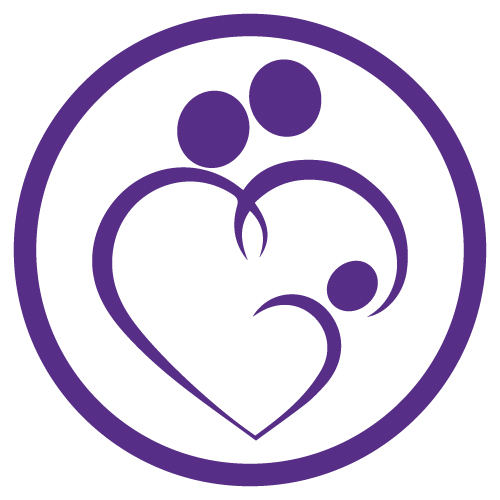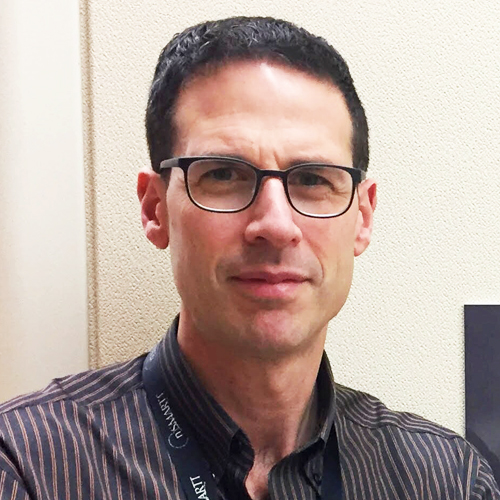 IBCLC Detailed Content Outline: Development and Nutrition Focused CERPs - Section I
IBCLC Detailed Content Outline: Development and Nutrition Focused CERPs - Section I
Access CERPs on Development and Nutrition for the IBCLC Detailed Content Outline recertification requirements. Enjoy convenient on-demand viewing of the latest Development and Nutrition focused IBCLC CERPs at your own pace.


Ben Kingston-Hughes is an international keynote speaker, author and multi award-winning trainer. He is also the Managing Director of Inspired Children and has worked with vulnerable children across the UK for over 30 years. He has appeared on television several times working on a variety of children’s projects and his distinctive blend of humour, neuroscience and real-life practical experiences have made his training invaluable for anyone working with children. His new book, “A Very Unusual Journey into Play.” is now available.
This fascinating session explores the vital role of Play in developing and growing children’s brains. The session takes delegates on a neurological journey into the child’s brain, exploring the profound importance of play for brain growth, wellbeing and even life expectancy. Looking at a range of neurological studies, Ben Kingston-Hughes makes a compelling argument that Play is not merely an optional extra for a child but a fundamental building block for every aspect of their well-being and development. This session is entertaining, thought-provoking and might just help us build the brains of the future.

Popular Diet Trends: Impact and Safety During Lactation

Meghan McMillin holds a Master’s Degree in Human Nutrition from the University of Illinois at Chicago. She has been a Registered Dietitian Nutritionist (RDN) since 2013 and became an International Board Certified Lactation Consultant (IBCLC) in 2019.
Meghan spent 5 years working clinically in the NICU, pediatric floor and women’s units of a local hospital. In 2019, Meghan started her own private practice and consulting company, Mama & Sweet Pea Nutrition, with a focus on postpartum and infant care. The mama to two young kids with food allergies, helping other families manage food allergies, whether it’s while breastfeeding, during the introduction of solids, or later in childhood, is her passion.
Meghan is a member of the International Lactation Consultant Association and the United States Lactation Consultant Association. She enjoys sharing her knowledge through social media and public speaking. Meghan is the coauthor of the eBook What To Eat When Your Baby Can’t Tolerate Milk, Soy, or Egg Protein; Nutrition guidance for avoiding milk, soy, and/or eggs while lactating.
Meghan has presented both nationally and internationally including for GOLD learning, the National WIC Association and the Academy of Nutrition and Dietetics. In 2020, Meghan was awarded the Emerging Professional in Women's Health Award from the Women's Health Dietetic Practice Group of the Academy of Nutrition and Dietetics.
Topic: Popular Diet Trends: Impact and Safety During Lactation - [View Abstract]
Diet culture is pervasive and it seems everyday brings about a new popular trend or style in how, when, or what to eat. The postpartum period often brings about an incredible amount of pressure to lose weight or “bounce back” to pre-pregnancy body shape. It’s no wonder many turn to popular diet trends with the promises of quick weight loss. However, with a lack of research in the lactating population, there remains concern regarding both the effect these diets may have on milk supply and their safety. This presentation will provide lactation professionals with the information they need to have informative discussions with their clients about popular diet trends.

View Details / Enroll

Preventing the Plunge: Why the First 2 Weeks are Crucial for Breastfeeding Duration.

Cindy Leclerc and Jana Stockham are Registered Nurses and IBCLCs with over 20 years experience helping families get started with breastfeeding. In addition to hands on care, Cindy and Jana use technology to support families through their website (cindyandjana.com), online prenatal breastfeeding classes (simplybreastfeeding.ca) and iPhone app, NuuNest. Cindy is a strong believer in mother-to-mother support, helping to facilitate breastfeeding and postpartum depression support groups. She is intrigued by all things online and actively uses social media to promote breastfeeding. Jana has been trained as a Baby Friendly assessor and helped to coordinate the first Baby Friendly designation in Saskatchewan. She has a passion to help families with new babies and facilitates a group for breastfeeding moms.
Topic: Meeting your breastfeeding goals - [View Abstract]
Topic: Preventing the Plunge: Why the First 2 Weeks are Crucial for Breastfeeding Duration. - [View Abstract]
The majority of women begin breastfeeding at birth. Within the first 6 weeks, however, breastfeeding rates fall dramatically. To help women hang in with breastfeeding beyond the first weeks, we must first understand why they struggle. Learn what the research is saying and what you can do in your practice to help women meet their breastfeeding goals. IBCLC’s who specialize in the early weeks of breastfeeding will share case examples based on over 20 years of working with breastfeeding families.

View Details / Enroll
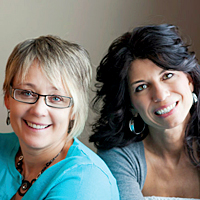
View Details / Enroll
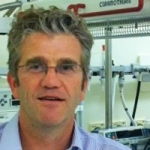

Dr Embleton has worked in neonatal medicine for the past 25 years, completing clinical training and a research doctorate in neonatal nutrition in the UK, and a neonatal fellowship in Vancouver, Canada. He has worked as a Consultant Neonatal Pediatrician in Newcastle, UK since 2002, one of the largest UK neonatal units, caring for sick preterm and term born neonates. He leads a broad portfolio of research focused on nutrition and gut health in preterm infants. Areas of work include determining patterns of early gut microbial colonization, and how these may predict the development of necrotizing enterocolitis (NEC) and sepsis. He is a project team member of large neonatal feeding trials recruiting >5000 infants in the UK, as well as coordinating mechanistic studies using microbiomic and metabolomic analyses. He chairs the multi-disciplinary UK Neonatal Nutrition Network (N3) and is a member of the Committee of Nutrition for ESPGHAN.
Topic: Probiotics in Preterm Infants - [View Abstract]
Preterm infants are at increased risks of death and serious morbidity, although outcomes have improved significantly over the last 20 years. However, complications associated with gastrointestinal disorders, especially necrotising enterocolitis (NEC), and sepsis are increasingly important problems as respiratory care has improved. There is over-whelming data to support the use of mother’s own breastmilk, but only a few other interventions have shown important impacts on NEC and sepsis. However, meta-analyses, systematic reviews, large scale randomised controlled trials (RCTs) and observational studies all suggest that the administration of probiotics decrease the prevalence of NEC and sepsis, and improve other measures of gastrointestinal function such as enteral feed tolerance. Probiotics are live bacteria associated with a health benefit. Multiple different species and strains are considered to be ‘probiotics’ but only a few of these have been tested in high quality RCTs in preterm infants. This talk will review aspects of gut microbiota development, the interaction between breast milk nutrients and the microbiome and the role of probiotics. Methodological challenges associated with the interpretation of existing data will be discussed, and practical steps and considerations for the use of probiotics and potential risks will be considered.

View Details / Enroll

Protecting Breastfeeding by Facilitating Safe, Early Discharge from NICU with Home Nasogastric Tube Feeding

Amanda is a children's nurse, having worked on pediatric wards and in the community supporting children with complex health needs, although over ten years of her nursing career have been in neonatal care, where she is further qualified in specialty (QiS). She trained and volunteered in breastfeeding peer support two years into her nursing career, ultimately sitting the exam to become an IBCLC to ensure that the families within neonatal care had access to an infant feeding specialist familiar with their journey. Amanda has since further specialized in Neonatal Homecare, is a Nurse Practitioner in restrictive lingual frenulum, and has worked as an Infant Feeding Lead for a regional surgical NICU and SCBU, as well as a regional Infant Feeding Advisor to ten neonatal units across a regional network. She has recently been appointed to the Board of Trustees for the Lactation Consultants of Great Britain (LCGB), where she is the Neonatal Lead.
While approximately 80% of UK mothers initiate breastfeeding, by 3-4 months, just 15% of infants receive any breastmilk. Despite the low rates of breastfeeding nationally, in 2021-22, 64% of the NICU graduates in our unit were discharged receiving breastmilk. One possible reason for the higher rates of breastfeeding in this population may be our innovative home NGT feeding programme. In order to hasten discharge from NICU, many mothers feel under pressure to introduce bottles to meet “full oral feeding” criteria. The home nasogastric tube (NGT) feeding programme focusses on the infant’s and family’s needs, without rushing the infant towards full oral feeding, which some are not yet ready for. In this way, all oral feeds can be at the breast, with NGT feeds as required for supplementation. We aim to reduce unnecessary days in hospital, reduce readmissions post-discharge, keep families close to their infants, and embrace the integration of families as essential members of the neonatal care team. This presentation will discuss the practicalities of designing a discharge pathway that optimises parental confidence and ensures competence with home administration of NGT feeds. It will also discuss how to predict which infants are ideal candidates for short-term home NGT feeding, and how to transition to direct breastfeeding. Finally, the presentation will present a case for home NGT feeding as an intervention to protect the mother’s breastfeeding goals, optimise clinical outcomes for infants, and improve the experience of neonatal care for families.

View Details / Enroll

Protocol for Successful Induced Lactation and the Importance of Mahram for Muslim Families

Dr. Anisa has been working as a Consultant Pediatrician for 11 years & an IBCLC for 12 years. Dr. Anisa has a strong belief that breastfeeding saves lives of infants & young children. In order to ensure improvement of the practice of exclusive breastfeeding rate in Malaysia, she established an ambulatory care center with breastfeeding consultation services for the residents in Johor (state) & founded a networking platform for home visit counselling session by trained lactation counsellors that is BCNP (Breastfeeding Counselors Networking Program) since January 2016. Apart from above mentioned, Dr. Anisa is a mother of 4 sons with various breastfeeding experiences, blending with knowledge gained from managing cases in clinic, conferences & readings, she is confident to give lectures related to children health & lactation at national level and internationally. As fractional pediatric lecturer in Monash University Malaysia, she teaches medical students the importance and benefits of breastfeeding to our children & maternal health with hope that future young doctors will support, protect & promote breastfeeding in their services. Since 2009, Dr. Anisa has been a National BFHI Auditor, National lactation center fascilitator, trainer & speaker, and has published 2 books on breastfeeding - Induced lactation guideline & breastfeeding comic (Dr Super Pot Pet). Her deep interest in induce lactation program leads her to present this topic for GOLD Lactation.
The meaning of mahram in Islam is a person with whom marriage is not permissible (haram) and the adopted baby will be able to achieve this mahram status by breastfeeding on her/his adopted mother for at least 5 times (satisfied feeding) before 2 years old according to the Muslim calendar. Subsequently, the baby status is similar to biological child of the adopted parents. Effective consultation is required to ensure the successful process of induced lactation for the aforementioned purpose.
During consultation, breastfeeding benefits are crucial information to be explained to the adopted parents, however achieving mahram status is an additional motivational factor. According to research done by Che Abdul Rahim,N. et.al (2020) there were 6 factors that impacted successful induction of lactation: 1) appropriate protocol, 2) support system, 3) knowledge on breastfeeding technique & use of equipment, 4) time management, 5) mother's nutrition, 6) perseverance & strong motivation through follow up & additional information about expected challenges to overcome.
This presentation provides details on how to successfully induce lactation and how this knowledge can be used to support all families, including Muslim families who are breastfeeding to achieve mahram.


Lisa Marasco has been working with breastfeeding mothers for 35 years and has been Internationally Board Certified since 1993. She holds a Master’s degree in Human Development with specialization in Lactation Consulting and was designated a Fellow of ILCA in 2009.
Lisa is co-author of Making More Milk: The Breastfeeding Guide to Increasing Your Milk Production, a contributing author to the Core Curriculum for Interdisciplinary Lactation Care, and a Cochrane Collaborative author. She is employed by WIC of Santa Barbara County while she continues to research, write and speak. In addition, Lisa is affiliated with La Leche League of So. Calif/Nevada, and serves on the Breastfeeding Coalition of Santa Barbara County.
Topic: Deciphering the Lactation Curve - [View Abstract]
Topic: Developing An Action Plan for Mammary Hypoplasia: Improving our Understanding to Optimize Care - [View Abstract]
Topic: Getting a Better Grip on Prolactin - [View Abstract]
Topic: Recognizing When Things Are Heading South - [View Abstract]
Topic: The Mysterious Milk Ejection Reflex - [View Abstract]
Breastfeeding is normally a robust process, but sometimes mothers and babies end up in a gray area where your gut isn’t sure that everything is going to be okay. When low milk production concerns present, where do you start? Is it real or perceived? Delayed, secondary or primary? Which came first, the chicken or the egg? This session walks through the assessment process to determine whether a problem exists and what the cause of a low milk supply might be.
View Details / Enroll


Dr. Narvey began his training in Pediatrics at the University of Manitoba in Winnipeg where he completed a year of further training in Neonatology. This was followed by two years of Neonatal fellowship at the University of Alberta in Edmonton. Afterwards he began his career as a Neonatologist in the same city and over the 6 years he spent there, his career included both clinical and administrative duties including 4 years as the Fellowship Program Director and two years as the Medical Director for a level II unit. In late 2010 he accepted a position in Winnipeg to become the Section Head of Neonatology and continues to hold this post. In 2016 he took on the additional role of Medical Director of the Child Health Transport Team. In 2015 he became a member of the Canadian Pediatric Society’s Fetus and Newborn Committee and in 2019 took over as Chair of the same. His interests predominantly lie in the use of non-invasive technology to minimize painful procedures during an infants stay in the NICU. He is active on social media and has a passion for fundraising and is an active board member of the Children’s Hospital Foundation of Manitoba.
Topic: Human Milk Diet and Fortification: Controversies and Evidence - [View Abstract]
Topic: Many Different Shades of Yellow - [View Abstract]
Topic: Respiratory Problems in the Newborn: Where Are We in 2022? - [View Abstract]
Topic: Sweet and Sour: Hypoglycemia in the Newborn - [View Abstract]
Newborns may develop respiratory distress for a number of reasons. Using a case study approach, several conditions will be explored with emphasis on what the standard of care is and what is the latest in our 2022 toolbox for treating them.

Responsive Breastfeeding: The Key to Optimal Infant Development

Martina Donaghy is a registered midwife of 30 years, an IBCLC of 22 years and a Senior Midwifery Lecturer of 17 years’ experience. During the past two decades her main posts as a hospital based Infant Feeding Specialist and a Midwifery Lecturer has seen a focus on educating registered midwives, student nurses, midwives, paediatric and Specialist Community Public Health nurses on the importance of breastmilk and breastfeeding, ensuring these students are equipped to support the breastfeeding mother in achieving her feeding goals. Martina has led and supported her university to achieve successful UNICEF UK Baby Friendly accreditation for the BSc Midwifery and Specialist Community Public Health Nursing programmes. She also teaches on the Midwifery Master’s program specialising in the promotion and support of physiological birth, breastfeeding, biological nurturing, and maternal, infant attachment. Recent publications include a chapter in Examination of the newborn and neonatal health, titled Helping parents make decisions regards to infant feeding and cosleeping. Her most recent midwifery article focused on supporting maternal and infant physiology after birth. She is originally from Australia and has resided in the United Kingdom for 30 plus years.
From the moment of conception, maternal and fetal physiology is intrinsically linked in a synergistic partnership, with optimal infant development dependent on this relationship continuing well into the infants first 1001 days. A key pivotal facet of this reciprocal relationship is responsive breastfeeding. Responsive breastfeeding is far more than a way of infant feeding, but a sensitive synchronous parenting style that secures optimal growth, nutrition, immune development, infant /maternal attachment, whilst fostering successful lactation and the development of positive feeding habits well into infancy. This presentation will explain what is meant by responsive breastfeeding, exploring the science behind how this type of feeding promotes optimal infant health.
The presentation will conclude with an exploration of the wider benefits of responsive breastfeeding, examining the possibility of this type of feeding style contributing to improving several public health issues, in particular childhood aversity and obesity. Lastly, recommendations for promotion and support of responsive breastfeeding will be outlined.
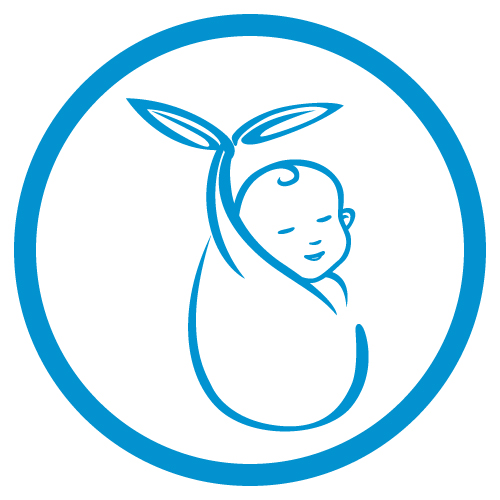
View Details / Enroll


Bryna is a lactation consultant, mentor, educator, and birth doula in the Pacific Northwestern United States. They are active in their community as an advocate for mutual aid, reproductive justice, and reduction in barriers to care. They also own and manage an inclusive private practice. As a member of both Queer and Neurodivergent communities, offering inclusive care on every level is very important to Bryna. Their vision is to offer information and tools to providers to build a community of comprehensive, concordant, and individualized care for all families in the perinatal period.
Topic: Breastfeeding With Ease: The Impact of Infant Reflex Emergence and Integration - [View Abstract]
Topic: Rhythmic Movement for Breastfeeding Function - [View Abstract]
Disorganized or absent infant reflexes can create challenges for breastfeeding/chestfeeding. This presentation takes a close look at the role of movement in the integration of disorganized infant reflexes and the use of rhythmic movement as a method for overcoming infant feeding challenges. This talk also covers socio-cultural impacts of trauma, lack of opportunity for movement, and modern care system barriers to reflex integration.

View Details / Enroll






